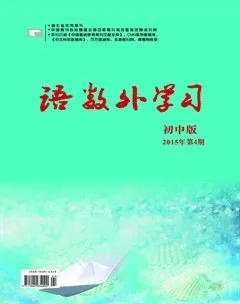清明节习俗
The various customs of Qingming Festival are very interesting. In addition to fire prohibition and tomb sweeping, there are also lots of customs and sports activities, including spring outing, playing on a swing, cuju, polo, and plant willows. As the legend tells, fire is prohibited during the Qingming Festival, so people come to join some sports activities to keep warm and avoid harms caused by cold dishes. As a result, this festival includes not only sorrows from sweeping new tombs, but also laughter from spring outings. This is a festival of diverse emotions.
Swing
This is a custom of Qingming Festival in ancient China. The swing means swinging with hide ropes in hands. It has a long history and was called “qianqiu” in the earliest period, then renamed as “qiuqian” to avoid taboo. In ancient times, tree branches were often used as the frame of a swing, which were tied to colored ribbons. Day of China. This makes significant senses in mobilizing people of all nationalities to participate in activities to afforest China.
Flying Kites
This is also a popular activity of Qingming among people. When Qingming draws near, people fly kites during day and night. When flying kites in nights, people hang bunches of small lanterns below kites or on bracing wires, and these lanterns look like twinkling stars, which are called “magic lights”. In the past, someone cut strings after sending kites into the sky, allowing them to go to the end of the world with refreshing breeze, which was said to remove diseases and disasters while bringing in fortune.
清明节的习俗是丰富而有趣的,除了讲究禁火、扫墓外,还有踏青、荡秋千、蹴鞠、打马球、插柳等一系列民俗及体育活动。相传这是因为清明节要寒食禁火,为了防止寒食冷餐伤身,所以大家都来参加一些体育活动,以保暖和避免伤身。因此,在这个节日中既有祭扫新坟的悲痛,又有踏青游玩的欢笑声。它是一个有着不同情感色彩的节日。
荡秋千
这是我国古代清明节的习俗。秋千,即揪着皮绳而迁移。它的历史很古老,最早叫作千秋,后来为了回避忌讳,改为秋千。古时的秋千多用树枝为架,再拴上彩带做成。后来秋千逐步发展为用两根绳化祖国的活动,有着十分重要的意义。
放风筝
这也是清明时节人们所喜爱的活动。每逢清明时节,人们不仅白天放风筝,夜间也放。夜里人们在风筝下或拉线上挂上一串串小灯笼,看起来就像闪烁的星星,它们被称为“神灯”。过去,有的人把风筝放上蓝天后,便剪断牵线,任凭清风把它们送往天涯海角,据说这样能除病消灾,给自己带来好运。
Later, it was developed into a swing with two ropes and one seat. Playing on a swing not only is a healthy exercise but also can raise ones courage; therefore, it is a beloved activity among Chinese, especially children, to these days.
Cuju
Ju is a kind of ball made of leather, which is plugged with hairs. Cuju means to kick the ball with feet. In ancient China, it was one kind of game loved by people during Qingming Festival. According to legend, it was invented by Yellow Emperor with the initial purpose of training warriors.
Spring Outing
Spring outing is also called spring excursion, which was also called spring exploration, spring seeking and so on in ancient times. Qingming arrives in the third month in the lunar calendar, when spring rolls up the ground and the nature world is filled with vigor. This is the perfect time to go for an outing. The tradition of spring outing in Qingming has been maintained among people in China for a long period.
Planting Trees
Around Qingming, the sun of spring shines brightly, and the rain of spring drops sufficiently, which help saplings to survive and grow. Therefore, the custom of planting trees in Qingming can be dated back to ancient times in China. Someone even regards Qingming as the “Arbor Day”. And this custom is still popular nowadays. In 1979, the Standing Committee of National Peoples Congress provided March 12th of every year as the Arbor
索加上踏板制成。荡秋千不仅可以增进健康,而且可以培养勇敢精神,所以至今为人们特别是儿童所喜爱。
蹴鞠
鞠是一种皮球,球皮用皮革做成,球内用毛塞紧。蹴鞠,就是用脚去踢球。这是古代清明节时人们喜爱的一种游戏。相传它是由黄帝发明的,最初目的是用来训练武士。
踏青
踏青又叫春游,古时还称作探春、寻春等。清明节是在农历的三月,春回大地,自然界中到处呈现一派生机勃勃的景象,正是郊游的大好时机。我国民间长期保留着清明踏青的习惯。
植树
清明前后,春光灿烂,春雨纷飞,种植树苗成活率高,生长快。因此,自古以来,我国就有清明植树的习俗。有人还把清明节叫做“植树节”。植树的风俗一直流传至今。1979年,全国人大常委会规定,每年的3月12日为我国的“植树节”。这对动员全国各族人民积极开展绿

